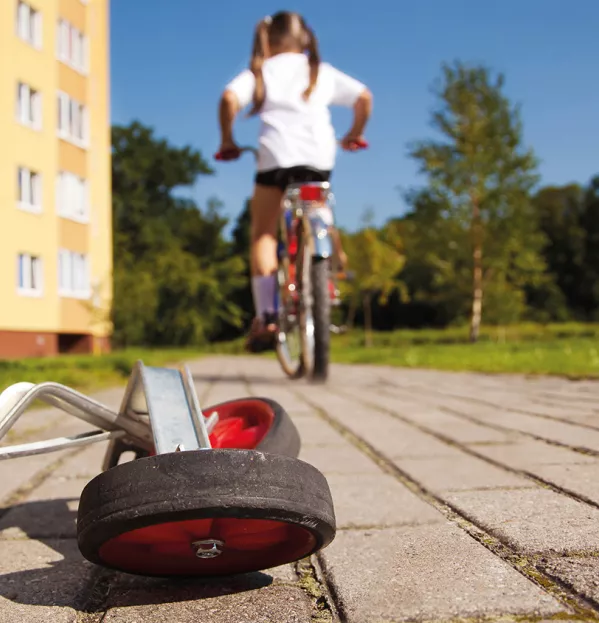As my son wobbled towards independent cycling, my hand gently pushing him on his way after hours of practice, I slowed down my breathless jogging and indulged in a small moment of pride.
This was the wrong choice. What I should have done was maintain my pace and keep an eye out for cats.
“Oh look, a cat!” exclaimed my son suddenly, twisting his head in a way that also twisted his arms, which twisted the bike, which left both bike and boy embedded in a bush, which left a small boy crying and an adult man feeling like a failure.
Surely, I thought, I should have been there to catch him? But perhaps not. Perhaps there are some lessons that need to be learned through experience. Perhaps these are the lessons that we most need to take to heart?
Sekiichi Kato certainly thinks so. He runs a school in Japan that creates inconveniences “on purpose, for the children’s future convenience”. In this week’s issue, Kato explains how the school’s grassy play area is purposefully bumpy to trip children and teach them to look where they are going.
The classrooms are ever-changing in size, with moveable walls that let in sound from all other classrooms. There are few strict rules of engagement around how, and when, children learn. “We want children to fall and learn not to fall again,” Kato says.
It’s an approach that will no doubt strike fear into the hearts of some teachers, the argument being that, in upping the chaos for long-term gain, you sacrifice education - children will learn less effectively and, ultimately, their future will be damaged. After all, to maximise learning, all the research points towards the opposite school environment to Kato’s - one heavily controlled for distraction.
Actually, not all the research says that. As Jared Cooney Horvath points out in this week’s cover feature, the notion of needing to control distraction comes from research into the brain, not the mind. Horvath argues that this isn’t always useful to teachers because they have to teach children, not brains - ie, they need to be concerned with the interaction of brain, body and environment.
That’s an interesting way of viewing things at the moment. With the majority of pupils learning from home, the ability of schools to control the variables has been minimised, while the need for independence and the ability to avoid “falling again” has been heightened. As many teachers have already said this past week, because of these factors, we can’t expect business as usual or comparable experiences.
For example, we can’t expect teachers to provide the same level of hand holding that children were perhaps offered in the classroom, no matter how much Ofsted and parents wish they could. Our current situation necessitates more of a Kato-style approach than some may be comfortable with - to do otherwise would be to increase workload to intolerable levels.
So, what’s the best way forward? As Mark Enser wrote this week, that’s an exciting conversation to have because “we still can’t say with any certainty how we should best approach remote learning”. But as he also says, we can’t rush that discussion or pre-determine the outcome. Teachers need to be given the time to work this one out for themselves.
“What we do know is that we need to be honest about this,” he says, “be willing to try different things and be given the space to find the way that works best in our own contexts.”
Of course, back at the cycling training, an eradication of the local cat population to eliminate future collisions was unrealistic, so my only option was the Kato approach. And I am pleased to report that no further cats nor bushes have since been harmed.
@jon_severs
This article originally appeared in the 15 January 2021 issue under the headline “When teaching remotely again, a little freewheeling is required”

